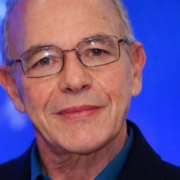Theoretical-conceptual researcher Orquiza JC launches The Price of Life: Your Work, Your Energy – The True Engine of the World Economy, a work that questions the current economic growth cycle and its impact on human health and the environment. Orquiza argues that the true essence of the economy lies in the vital force of the worker, proposing a review of the modern work model to ensure a more balanced and sustainable future.
Your book explores how the current model of productivity places the human body in a constant state of exhaustion. How do you believe this pressure affects not only people’s physical well-being, but also their psychological and emotional well-being?
We live in an economy that steals our invisible energy, the energy that should keep our cells alive and healthy. The direct consequence of this constant demand is physical exhaustion that quickly turns into emotional and psychological wear and tear, causing anxiety, depression, and chronic diseases. The current economic system acts like a parasite that does not respect the natural limits established by human DNA.
You mention that our prehistoric ancestors spent about 1.5 to 2 hours a day working to ensure survival. In a world where the pace of work is much more intense, what do you think could be done to restore a balance closer to this natural model?
We urgently need to question why today we dedicate almost all of our vital energy to the economic system, while our ancestors solved this in less than two hours. The provocation here is to radically rethink our idea of productivity: fewer hours worked, more efficiency, more real life. It is not a utopia, but a question of respecting the natural logic that sustains life.
In The Price of Life, you propose that true sustainability involves respecting the natural limits of the human body. What would be the first steps, in your opinion, for companies and governments to begin implementing this change in mindset?
Companies and governments need to accept that human beings are not machines. The first step is to create clear limits on working hours, ensuring mandatory rest periods. Another essential step is to measure productivity by the quality of energy invested, rather than the amount of time spent working. This is an urgent change that directly challenges the foundations of the current economic system.
The book combines concepts from philosophy, geopolitics, physics and sociology to understand the relationship between work and energy. Which of these areas surprised you the most during your research and how did it influence your view on the subject?
Physics surprised me deeply, because it revealed that the entire global economy depends directly on the energy produced by human cells. When I realized that every penny, every product, every economic movement depends on this invisible energy that only people can provide, my view changed radically: the economy does not exist without human beings. When humanity disappears, the economy dies immediately.

The idea that the economy is driven by the lifeblood of the worker is quite provocative. Do you think this view could influence labor and economic policies in the future? What kind of resistance do you imagine you would face in this process?
This vision could undoubtedly revolutionize labor and economic policies by revealing that the true economic asset is human life. But resistance will be fierce, coming from those who profit from the current system of energy exploitation. The greatest resistance will come from the economic structure itself, which prefers to ignore the biological and emotional costs of sustaining its artificial growth.
You emphasize that production is placed above human exhaustion. In a scenario of global competitiveness, how can we balance economic progress with the well-being of workers without compromising the development of nations?
Balancing means admitting that economic progress does not have to be synonymous with human exhaustion. We need a new economic vision, where efficiency replaces exploitation. Investing in innovation, technology and shorter working hours with a better quality of life does not compromise development; on the contrary, it ensures sustainable and humane growth.
The Price of Life is an invitation for society to reevaluate its relationship with work and productivity. What practical changes do you hope readers will adopt in their lives after reading the book?
I hope that readers will have the courage to say “no” to the logic that steals their invisible energy. In practice, this means reviewing their relationship with consumption, demanding fairer working conditions, prioritizing their health and rest, and, above all, always remembering that every minute of energy invested in the economic system is taken away from their personal and biological life.
Your book warns about the unsustainable pace of modern industrial production. How do you see the role of technology in this dynamic? Is it part of the problem or can it be a tool to find this balance?
Technology is a double-edged sword. If used to further accelerate the exploitation of invisible energy, it is part of the problem. But if used wisely, to lighten the biological burden, it can help restore the natural balance we have lost. The real challenge is to use technology to free human energy, not to further imprison it in unsustainable cycles of production.
Follow Orquiza JC on Instagram





